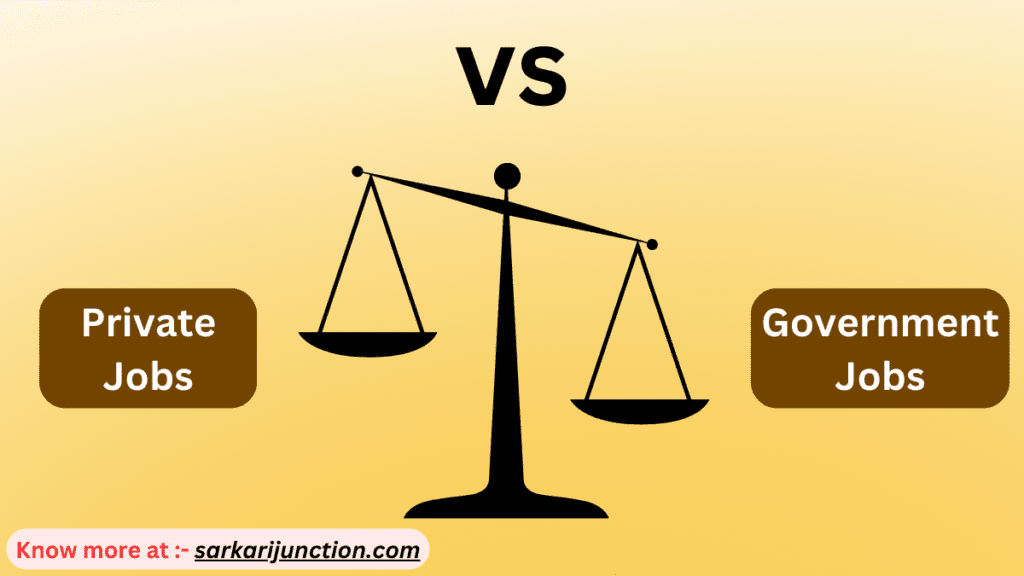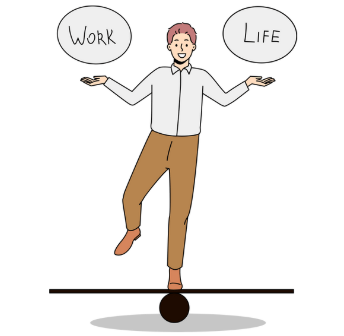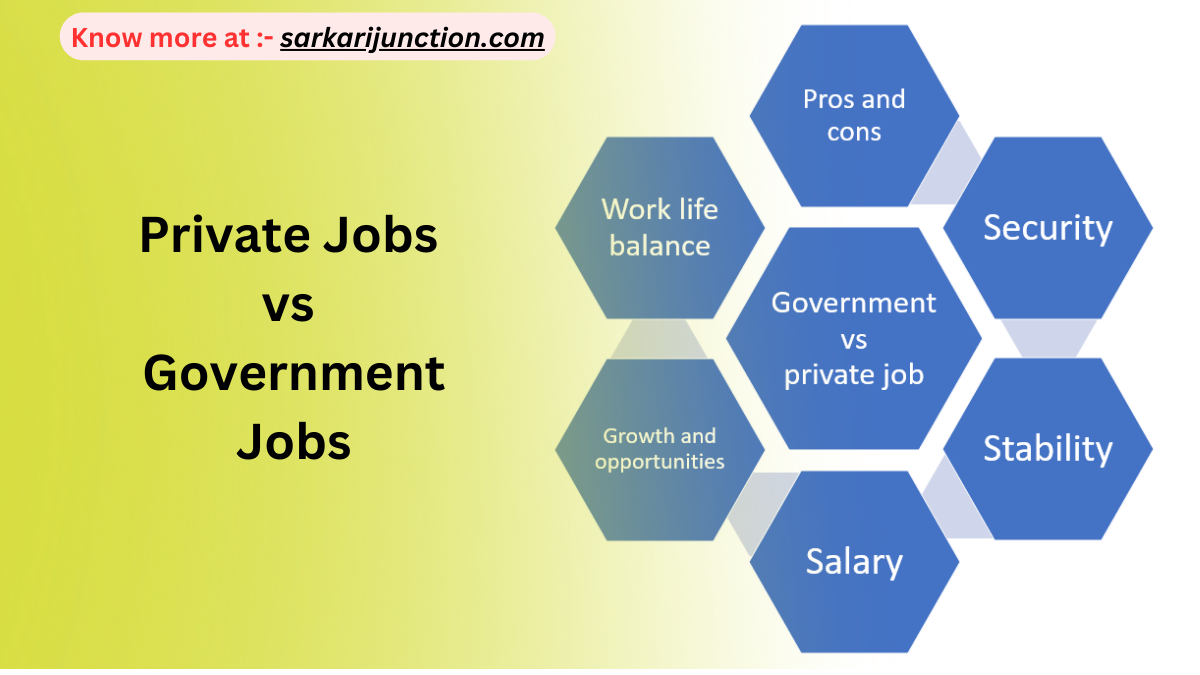Are you torn between pursuing a private job or a government job? They both offer unique advantages and drawbacks that can significantly impact your career trajectory. In this article, we will explore the pros and cons of each career path, helping you determine which one is right for you.
Private jobs are known for their dynamic work environments and potential for rapid growth. With private companies, you can expect more flexibility, higher salaries, and performance-based incentives. On the other hand, government jobs offer stability, job security, and attractive retirement benefits. They often come with a fixed 9-to-5 schedule and a structured hierarchy.
To decide which career path aligns with your aspirations and goals, it’s essential to consider factors such as work-life balance, job security, salary potential, growth opportunities, and personal interests. By weighing the pros and cons of both private and government jobs, you’ll be able to make an informed decision that suits your needs.
Whether you’re a fresh graduate just starting your career or an experienced professional seeking a change, this article will provide valuable insights to help you make the right choice. So let’s dive in and explore the exciting world of private and government jobs!
Pros and Cons of Private Jobs

When considering private jobs, one of the most significant advantages is the potential for higher salaries. Many private companies, especially in competitive industries such as technology or finance, offer lucrative compensation packages that can far exceed what is typically available in government positions. Additionally, private organizations often provide performance-based bonuses and commissions, which can further enhance overall earnings. This financial incentive can be particularly appealing to those who are ambitious and seek to maximize their income potential.
Another major benefit of private jobs is the flexibility they often provide. Many private companies have adopted more modern work environments, which may include options for remote work, flexible hours, and casual dress codes. This adaptability can lead to a more enjoyable work experience and allows employees to balance their personal and professional lives more effectively. In contrast, government jobs usually adhere to stricter schedules and formal attire, which might not suit everyone’s lifestyle.
However, private jobs come with their own set of challenges. The fast-paced nature of the private sector can lead to a high-pressure environment, where job security can be less stable compared to government positions. Employees may find themselves facing layoffs or downsizing during economic downturns, which can create significant stress and uncertainty. Additionally, the emphasis on performance metrics and competition among colleagues can foster a cutthroat atmosphere that may not be appealing to everyone, especially those who prefer collaborative work cultures.
Pros and Cons of Government Jobs
Government jobs are often associated with a high degree of job security, which is one of their most significant advantages. Once you secure a government position, it is relatively rare to face sudden layoffs, making it an appealing choice for individuals who prioritize stability. This security allows employees to plan long-term, knowing that their job is less likely to be affected by the vicissitudes of the economy. Furthermore, government jobs often come with robust benefits, including health insurance, retirement plans, and paid leave, which contribute to overall job satisfaction.
Another key advantage of government employment is the structured work environment it typically offers. Most government jobs follow a fixed schedule, usually resembling a standard 9-to-5 workday, which can be beneficial for those who prefer a clear separation between work and personal life. Additionally, the hierarchical nature of government positions provides a clear path for career advancement, allowing employees to move up within the organization through established promotion processes. This predictability can be comforting for those who thrive in structured environments.
On the downside, government jobs may not provide the same level of financial rewards as private sector positions. Salaries in government roles can be significantly lower, particularly in entry-level positions, and there is often less room for negotiation. Moreover, the bureaucracy inherent in government organizations can lead to slower decision-making processes, which may frustrate individuals looking for innovation and quick results. Some employees might find the work less dynamic and stimulating, leading to potential dissatisfaction over time.
Factors to Consider When Choosing Between Private and Government Jobs

Making the decision between a private job and a government job involves careful consideration of various factors that can influence your career trajectory. One of the primary aspects to evaluate is your personal career goals. If you are driven by financial success and rapid advancement, a private sector job may align more closely with your aspirations. Conversely, if your priorities include stability and benefits, a government job might be more suitable. It’s essential to reflect on what motivates you and what you envision for your future.
Work-life balance is another critical factor to consider. Private jobs may offer more flexibility, but they can also demand longer hours and greater commitment. If you value your personal time and prefer a more structured environment, a government job may better suit your lifestyle. Analyzing your current life situation and future plans can help you assess which type of employment aligns best with your needs.
Additionally, consider the nature of the work you enjoy. If you thrive in dynamic, fast-paced environments and enjoy the challenge of meeting targets, private sector roles could be a better fit. However, if you prefer a more predictable routine and find fulfillment in serving the public, a government position may resonate more with your values. Understanding your own preferences and strengths will enable you to make a more informed decision about the career path that’s right for you.
Job Security and Stability
Job security is often cited as one of the most compelling reasons to pursue a government job. The stability offered by government positions is particularly appealing in uncertain economic climates. Employees can typically count on consistent employment, even during economic downturns when private companies may struggle. This guarantee allows for better financial planning and peace of mind, particularly for those with families or significant financial obligations.
In contrast, while private jobs can offer lucrative salaries and rapid advancement opportunities, they often come with a trade-off regarding job security. The private sector can be unpredictable, with companies subject to market fluctuations, mergers, and acquisitions that can lead to layoffs. Workers in private industries may feel a constant pressure to perform and prove their worth, which can create anxiety about job stability. This uncertainty can be a significant drawback, especially for individuals who prioritize long-term security in their careers.
It’s also worth noting that job security can vary widely even within the private sector. Established companies with a strong market presence may provide a more stable work environment compared to startups or smaller firms. Therefore, individuals considering private employment should research potential employers and evaluate their stability and reputation in the industry. Understanding the nuances of job security in both sectors will help you make a more informed career choice.
Salary and Benefits

Salary and benefits are crucial considerations when comparing private and government jobs. In general, private sector positions tend to offer higher starting salaries and the potential for significant pay increases over time, especially in high-demand fields. Moreover, many companies provide performance-based incentives, bonuses, and stock options, which can substantially boost overall compensation. For individuals who prioritize financial growth and are willing to take on the risks associated with private employment, the potential rewards can be attractive.
On the other hand, government jobs may have lower base salaries, but they often compensate for this with extensive benefits packages. These packages typically include comprehensive health insurance, retirement plans, and generous paid leave policies. In addition, government employees often enjoy job perks such as tuition reimbursement, flexible spending accounts, and various forms of paid time off, which can enhance overall job satisfaction. It’s essential to weigh the overall value of the total compensation package, rather than focusing solely on salary figures.
Furthermore, individuals should consider the long-term implications of salary and benefits when making their decision. Government positions generally offer stability in benefits, which may increase over time with regular cost-of-living adjustments. In contrast, private companies may change their benefits based on profitability and market conditions, leading to potential fluctuations in employee compensation. Evaluating your financial goals and personal priorities will help clarify which career path aligns best with your expectations for salary and benefits.
Work-Life Balance

Work-life balance is an essential aspect of any career choice, influencing overall job satisfaction and personal well-being. For many individuals, government jobs provide a more structured work environment that fosters a healthy balance between professional obligations and personal life. The typical 9-to-5 schedule allows employees to plan their personal activities outside of work hours, leading to a more predictable lifestyle. Additionally, government roles often come with generous vacation and sick leave policies, enabling employees to take necessary time off without fear of repercussions.
In the private sector, work-life balance can be more variable. While some private companies prioritize employee well-being and offer flexible hours or remote work options, others may demand longer hours and a more intense commitment. This variability can create challenges for employees striving to maintain a healthy balance between their work and personal lives. The competitive nature of many private industries may also lead to an “always-on” mentality, making it difficult for individuals to disconnect from work.
Ultimately, the importance of work-life balance will vary among individuals based on personal circumstances and career aspirations. Some may thrive in high-pressure environments and find fulfillment in their work, while others may prioritize personal time and seek a more structured routine. Assessing your own values and lifestyle preferences will help you determine which type of job aligns best with your desired work-life balance.
Growth and Advancement Opportunities

When evaluating career paths, growth and advancement opportunities play a crucial role in shaping long-term career satisfaction. In the private sector, employees often have the potential for rapid advancement, especially in fast-growing industries. Performance-driven cultures may reward hard work and innovation with promotions and raises, allowing ambitious individuals to climb the corporate ladder quickly. The dynamic nature of private companies can also present opportunities for employees to take on diverse roles, expanding their skill sets and experiences.
In contrast, government jobs typically have a more structured promotion process. While there are opportunities for advancement, the hierarchy and bureaucratic nature of government organizations can sometimes slow down career progression. Employees may need to wait for specific openings and meet formal qualifications to move up, which can be frustrating for those eager to advance quickly. However, this structure can also provide clarity and transparency regarding career paths, allowing employees to set realistic goals for their advancement.
It’s important to consider your own career aspirations and how they align with the growth opportunities available in each sector. If you thrive in environments where you can take initiative and drive your career forward, a private job may be more suitable. However, if you prefer a clear path for advancement and appreciate the stability of a structured environment, a government job may better meet your needs. Understanding your priorities will help you make a more informed decision about which career path to pursue.
Job Satisfaction and Fulfillment
Job satisfaction and fulfillment are essential components of a rewarding career. In the private sector, individuals may find greater job satisfaction due to the alignment between their roles and their personal interests. The diverse range of industries and positions available allows employees to pursue careers that resonate with their passions and skills. Additionally, the potential for financial rewards and recognition can enhance job satisfaction, as employees feel valued for their contributions.
On the other hand, government jobs can offer a unique sense of fulfillment, particularly for individuals who are motivated by service and community impact. Working for the public sector often means contributing to social good and helping to improve the lives of citizens. This sense of purpose can lead to a high level of job satisfaction, as employees feel that their work has meaningful implications for society. Moreover, the stability and benefits associated with government roles can contribute to overall happiness and well-being.
Ultimately, the degree of job satisfaction one experiences will depend on personal values and career preferences. Individuals should reflect on what aspects of work are most important to them, whether it be financial rewards, personal fulfillment, or the opportunity to make a difference. By considering these factors, you can better assess which career path—private or government—will lead to a more satisfying and fulfilling professional life.
Conclusion: Making the Right Career Choice
Choosing between a private job versus government job is a significant decision that can shape your career trajectory and overall life satisfaction. Each option presents its own set of advantages and disadvantages, making it essential to carefully evaluate your personal values, career goals, and lifestyle preferences. By considering factors such as job security, salary, work-life balance, growth opportunities, and job satisfaction, you can make a more informed choice that aligns with your aspirations.

As you contemplate your future, remember that there is no one-size-fits-all answer. Some individuals thrive in the dynamic, competitive environment of the private sector, while others find fulfillment in the stability and service-oriented nature of government roles. Reflecting on your own strengths, interests, and priorities will help you navigate this important decision.
Ultimately, the right career choice should resonate with your personal and professional goals, providing you with a sense of purpose and fulfillment. Whether you choose the path of private employment or opt for a government position, ensure that your decision aligns with your vision for your future and supports your overall happiness and well-being. Take the time to explore your options thoroughly and trust that your choice will lead you to a fulfilling and rewarding career.

